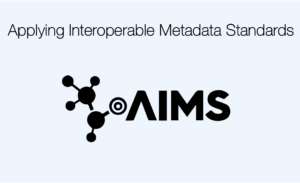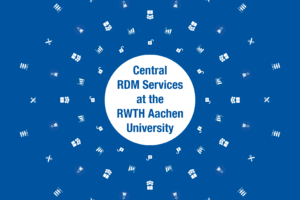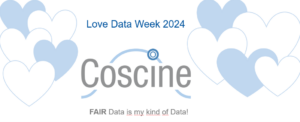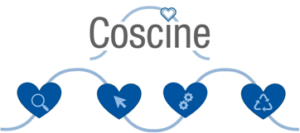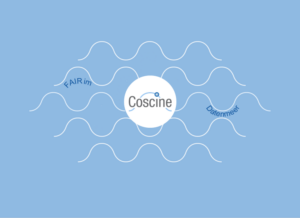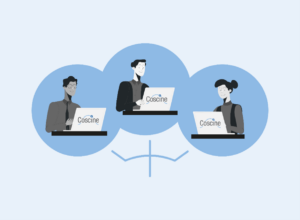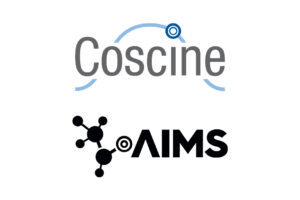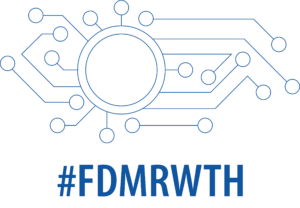Schlagwort: ‘AIMS’
November 4th, 2025 | by
Kaulbach, Lina-Louise

Source: Own illustration
On the occasion of the Research Data Day (TdF) on November 18, 2025, we would like to give you a preview of our “RDM Practice ” and “RDM Services ” arenas. These are worth venturing into on Research Data Management (RDM) Day. In this article, you will get a preview of Coscine and AIMS at TdF! Meet the people behind Coscine and AIMS and learn more about the latest developments of the two RDM platforms.
Join us at TdF, engage in dialogue with the contributors, and take advantage of the networking opportunities with other RDM members!
Read the rest of this entry »
Kategorie: An der RWTH, From the practice, Informationen & Beratung, RWTH Best Practices
No Comments »
October 9th, 2025 | by
Ujkani, Arlinda

Source: AIMS
Metadata is the backbone of research data management (RDM). It makes data discoverable, understandable, and reusable. But how can metadata be designed in such a way that it is both interoperable across disciplines and practical for use in specific disciplines? This is precisely where the DFG-funded project AIMS 2 (Applying Interoperable Metadata Standards) comes in. In this blog post, we take a closer look at the project and provide insights into its goals and priorities as well as the people involved.
Read the rest of this entry »
Kategorie: Allgemein
No Comments »

Source: IT Center RWTH Aachen
This article is part of our series “Central RDM Services at RWTH Aachen“. It is intended to show our researchers – i.e. you – which RDM services are offered at RWTH Aachen University to support you in your research and data management. We talk to the people responsible for the services and collect all the information for you in the individual articles. In this article, we would like to introduce you to the RDM service “AIMS”.
Read the rest of this entry »
Kategorie: Allgemein, IT-Services, Services
No Comments »
April 4th, 2024 | by
Kaulbach, Lina-Louise

IT Center RWTH Aachen
We are pleased to present to you – as researchers at RWTH Aachen University – our new series of articles in which we have collected all the information on RWTH’s central RDM services for efficient research data management (RDM). These RDM services are managed by RWTH staff and service managers and are available for you to use.
In the coming weeks, you can look forward to a compact article on each service and get comprehensive information.
Read the rest of this entry »
Kategorie: Allgemein, An der RWTH, Informationen & Beratung, IT-Services
No Comments »
February 29th, 2024 | by
Ujkani, Arlinda

Source: Own illustration
The Love Data Week 2024 may be over, but our love for FAIR data remains! Among the many exciting talks that took place during this week was the presentation “Coscine – FAIR Data is my kind of Data!”. In this blog post, we take a look at the aspects presented and the exciting developments that are shaping the future of FAIR data at Coscine.
Read the rest of this entry »
Kategorie: An der RWTH, From the practice, Berichte, Informationen & Beratung, IT-Services, Services
No Comments »
February 23rd, 2023 | by
Ujkani, Arlinda

Source: Own illustration
If you haven’t fallen in love with Coscine yet, you will have fallen under the spell of the research data management platform by February 14, 2023 at the latest – fittingly on the day of love. In this follow-up-report we have summarized the event for you and why Coscine makes your heart race. The event Coscine – FAIRly in Love with Research Data event took place as part of the Love Data Week.
Read the rest of this entry »
Kategorie: Allgemein, An der RWTH, Berichte, FDM-Team unterwegs, Informationen & Beratung, Services
No Comments »
December 29th, 2022 | by
Kaulbach, Lina-Louise
We are fast approaching the turn of the year. Just before the corks pop, we would like to look back on an exciting and eventful 2022 and review the many changes, events and happenings in the field of Research Data Management. Before we face new challenges and changes in the new year… 🙂
Read the rest of this entry »
Kategorie: Allgemein, An der RWTH, From the practice, Berichte
No Comments »
December 1st, 2022 | by
Ujkani, Arlinda

Event Coscine – FAIR guarantee in the data sea
Source: Own illustration
We continue with the follow-up report on the afternoon program of the Research Data Day 2022 held at the RWTH Aachen University. Just as last year, researchers from all over North Rhine-Westphalia were allowed to get a taste of the Coscine workshop and ask their questions about the platform for research data management. In this post, we have summarized the contents of the one-hour workshop for you. You can download the slides of the workshop on Zenodo.
Read the rest of this entry »
Kategorie: Allgemein, An der RWTH, From the practice, Berichte, Informationen & Beratung, IT-Services, Services
No Comments »
November 17th, 2022 | by
Ujkani, Arlinda

Source: Own illustration
Since the last update in July of this year, a lot has happened in Coscine. To keep you up to date, this blog post summarizes the latest developments around the platform for research data management and looks back on the past months.
Read the rest of this entry »
Kategorie: Allgemein, An der RWTH, From the practice, Informationen & Beratung, IT-Services, Services
No Comments »
March 24th, 2022 | by
Ujkani, Arlinda

Source: Own Illustration
Coscine is in constant development. As of this week, it is now possible to create individual application profiles using the integration of the application profile generator from AIMS. The new feature is primarily aimed at data stewards and people familiar with their domain-specific ontologies. What AIMS is and how the creation of application profiles in Coscine works is presented in this article.
Read the rest of this entry »
Kategorie: Allgemein, An der RWTH, Services
No Comments »




